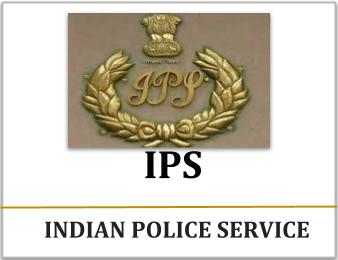DIG Deputation Rules

Copyright infringement is not intended
Context: The Union Government has proposed new rules for deputation of Deputy Inspector General (DIGs).
Details:
- After the proposal to amend the All India Service Rules, now the Union government has issued another order related to the central deputation of Deputy Inspector General (DIGs).
- Department of Personnel and Training (DoPT) has said that IPS officers coming to the Center at DIG level would no longer be required to be enrolled at that level with the Union Government.
About Deputy Inspector General of Police (DIG):
- Deputy Inspector General of Police is a high-ranking official position in the Police department.
- DIG is a rank held by Indian Police Service officers who had successfully served as Senior Superintendent of Police or Deputy Commissioner of Police and got promoted to this rank.
- DIGs rank just below the Inspector General of Police.
- There is no limit to the number of DIGs a state can have and most states have several DIGs.
Why Police reforms?
- To ensure an efficient, accountable and people-centric police that upholds the Rule of Law in all situations.
- Police forces need to be well-equipped, in terms of personnel, weaponry, forensic, communication and transport support, to perform their role well.
- Police forces need to have the operational freedom to carry out their responsibilities professionally and satisfactory working conditions while being held accountable for poor performance or misuse of power.
- To promote Internal and external accountability of the Police department.
- The UN recommended standard is 222 police per lakh persons, in India the actual police strength in India is at 137 police per lakh persons.
- To improve the quality of Crime investigation.
- To resolve the issue of underreporting of crime in India.
- The conviction rate for crimes recorded under the Indian Penal Code, 1860 was less than 50%.
- To Strengthen Police infrastructure; Strong communication support, modern weapons, and a high degree of mobility.
- To create strong Police-Public relations, as police requires the confidence, cooperation and support of the community to prevent crime and disorder.
Directions of the Supreme Court in Prakash Singh v/s Union of India:
- Constitute a State Security Commission in every state that will lay down policy for police functioning, evaluate police performance, and ensure that state governments do not exercise unwarranted influence on the police.
- Constitute a Police Establishment Board in every state that will decide postings, transfers and promotions for officers below the rank of Deputy Superintendent of Police and make recommendations to the state government for officers of higher ranks.
- Constitute Police Complaints Authorities at the state and district levels to inquire into allegations of serious misconduct and abuse of power by police personnel.
- Provide a minimum tenure of at least two years for the DGP and other key police officers within the state forces.
- Ensure that the DGP of state police is appointed from amongst three senior-most officers on the basis of length of service, good record and experience.
- Separate the investigating police from the law and order police.
- Constitute a National Security Commission to shortlist the candidates for appointment as Chiefs of the central armed police forces.
https://indianexpress.com/article/explained/digs-deputation-rules-centre-order-explained-7798163/



1.png)
